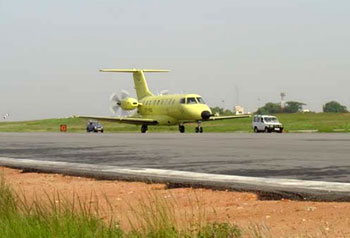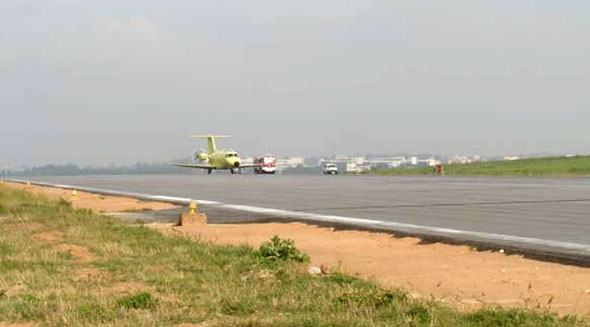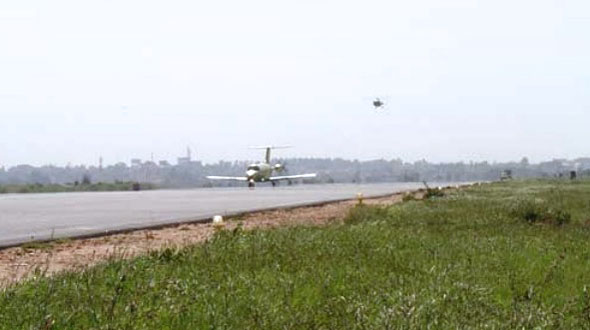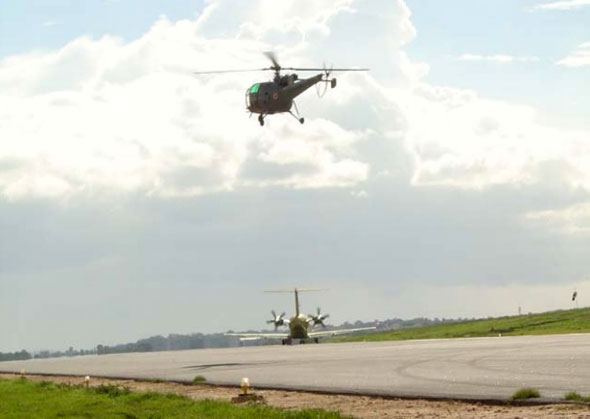There is a level lame and then there are "researched" articles written by Ex defence personnels. Each and every time such "ground breaking" articles comes out of places where the sun doesn't shine it provides an opportunity to have a few laughs in an otherwise serious thread (trolls also achieve the same effect). Here we have Lt Gen Harwant Singh (retd) claiming
It is DRDO component grouped with the navy that has performed well.
This has essentially been due to direct control that the navy has exercised over this component. 
Of the three establishments, one is always commanded by a naval officer and the other two have a number of naval officers on their establishment. Thus a series of projects have been successfully completed: some on their own and some others as part of collaboration with certain foreign companies. Nuclear submarine is one such example.
This and the rest of the part about Naval control over DRDO labs is total and absolute bunkum/lie being peddled by him. First of all the Navy has a tilt towards indigenization which is unmatched by IAF/IA. It is in their culture to seek out for indigenization no matter what the cost even to the level where warships gets delayed because of the Navy's will to have indigenous components. Full marks to Navy for that. To add to that they don't display the contempt for our scientific/engineering community (except a few) which is otherwise prevalent in IA/IAF as can be seen by multiple articles written by ex IA/IAF personnels. Coming to the three labs that he talks about let me post the info for the same
Naval Materials Research Laboratory
Director's Profile
Dr. R.S.HASTAK is a post-graduate in Chemical Engineering from Indian Institute of Technology, Bombay in the year 1978 and Ph.D in the year 2012 from Defence Institute of Advanced Technology(Deemed University), Pune. He joined Defence Research & Development Orgnisation in the year 1980. His experience includes rocket propulsion, power sources for aerospace applications, Carbon-Carbon Composites, field mobile ground support systems. He worked in DRDO labs located in Hyderabad for three decades.
Dr. R.S.HASTAK was appointed as the Director, Naval Materials Research Laboratory (NMRL) in Dec 2009. In his present capacity, he is spearheading research, technology & product development activities in the area of materials for marine applications. He is actively involved in the technology development for the fuel cells & supercapacitors.
In the area of marine materials, Dr. R. S. Hastak is working on high strength, high stiffness metallic materials, polymeric & ceramic materials. He is leading a team engaged in the development & productionisation of corrosion resistant paints & coatings for marine applications and antifouling coatings for marine vessels.
Naval Physical and Oceanographic Laboratory
Director's Profile
Shri S Anantha Narayanan Outstanding Scientist and Director, Naval Physical and Oceanographic Laboratory (NPOL), Kochi has been promoted to the grade of Distinguished Scientist.
Shri Anantha Narayanan obtained BTech in Electronics Engineering from IIT-Madras in 1975 and MTech in Electronics from Indian Institute of Science, Bengaluru, in 1985 with Gold Medal. He is an alumnus of the National Defence College, New Delhi, where he underwent training on National Security and Strategy in 2003.
Shri Anantha Narayanan joined DRDO in 1975 as Junior Scientific Officer at Defence Research and Development Laboratory, Hyderabad. Subsequently he was transferred to NPOL, Kochi, in 1978. He was appointed Director, NPOL, on 1 January 2007 and was promoted as Outstanding Scientist in July 2009.
Shri Anantha Narayanan has made seminal contributions to the development of sonar systems for the Indian Navy. He was part of the development team of the first frigate sonar project. He was the Team Leader for the project APSIM established in ASW School, Naval Base in 1985. During 1993-98, Shri Anantha Narayanan was the Project Director for India’s first indigenously developed submarine sonar project, which paved the way for self-reliance in this field. As Director (Systems) he was instrumental in streamlining the production andinduction of several Sonar Systems during 2000-2006. As Director, NPOL, he was instrumental in realising a new generation surface ship sonar in a very short span of time. He has guided the development work on towed array and airborne sonar systems in NPOL. Shri Anantha Narayanan is a recipient of the DRDO Scientist of the Year Award in 1995 for his outstanding contributions in development of Naval Systems.
He is a fellow of IETE and a member of Ultrasonic Society of India and Acoustical Society of India.
Naval Science & Technological Laboratory
Director's Profile
Shri CD Malleswar Sc G, has assumed the charge of Director, Naval Science and Technological Laboratory (NSTL),Visakhapatnam,wef 1 October 2013.
Shri Chengalvala DurgaMalleswar, obtained his MSc (Tech)electronics degree with Radar Engineering as specialisation from the Andhra University in 1977 and MS in Electronics and Communications form IIT-M, Chennai, in 1980. He is a graduate of the 45th course of the National Defence College, New Delhi. He also holds an MPhil in Defence and Strategic Studies, from the University of Madras. Since 1980, he is with DRDO in various capacities as Group Leader, System Designer, Officer In-charge System Integration, Project Director and Head of the Technology Directorates of Weapon Fire Control Systems and Countermeasures. His significant contributions include: First Solid-state Weapon Data Recorder for Torpedoes, first Indigenous Tactical Weapon Control System 'Panchendriya' for submarines, Helicopter Fire Control System, Integrated Anti-Submarine Warfare Complex, IAC Mod '0' and Mod 'C' for Naval Frigates and ASW Corvettes, and Anti-Torpedo Decoy Launch Control Systems. Apartfrom these, he has also contributed for successful completion of Wire Guided Torpedo Project as Officer In-charge System Integration and to several Torpedo Induction support products like Air/Ship-borne Presetters, Torpedo Simulators and Drill and Practice Torpedo, etc. All these systems are being produced by defence production agencies and inducted into the services. He is the recipient or DRDO Technology Group Award- 2004, and the DRDO Scientist of the Year Award-2007 conferred by hon'ble Prime Minister of India.
Shri Malleswar is a member of IEEE and life fellow of IETE. He has successfully conducted two national conferences ACCT-2012 and ARCNET-2013. He is presently the Chairman of IETE, Visakhapatnam.
Tell me where does anyone see the name of any Naval officer commanding any one of the institutes. There is no control of any DRDO lab by IN neither there is any hidden control by IN over the director of any of these labs. The thing here is that IN closely works with DRDO in doing all the basic R&D which is required before going on to make any worthwhile product. But accepting this will put IA/IAF into a bad place because then people will ask why aren't you doing the same ??? Which will lead to massive chaddi uttaroing exercise in full public view hence create a bogey of DRDO naval labs being under the command of Navy.
The actual agenda of this article is not wishing indigenization but
The DRDO needs to be placed under the CDS, which will result in mutual confidence and better interaction with the services and bring in efficiency and good performance.
Get the dirty civilians under Army control !!!!!
Now without creating a bogey of IN having control of DRDO labs how will you peddle your pet agenda ??? People with such mentality are very dangerous and it's good that they don't have any decision making power. Such farticles are the best they can do so read and laugh.





